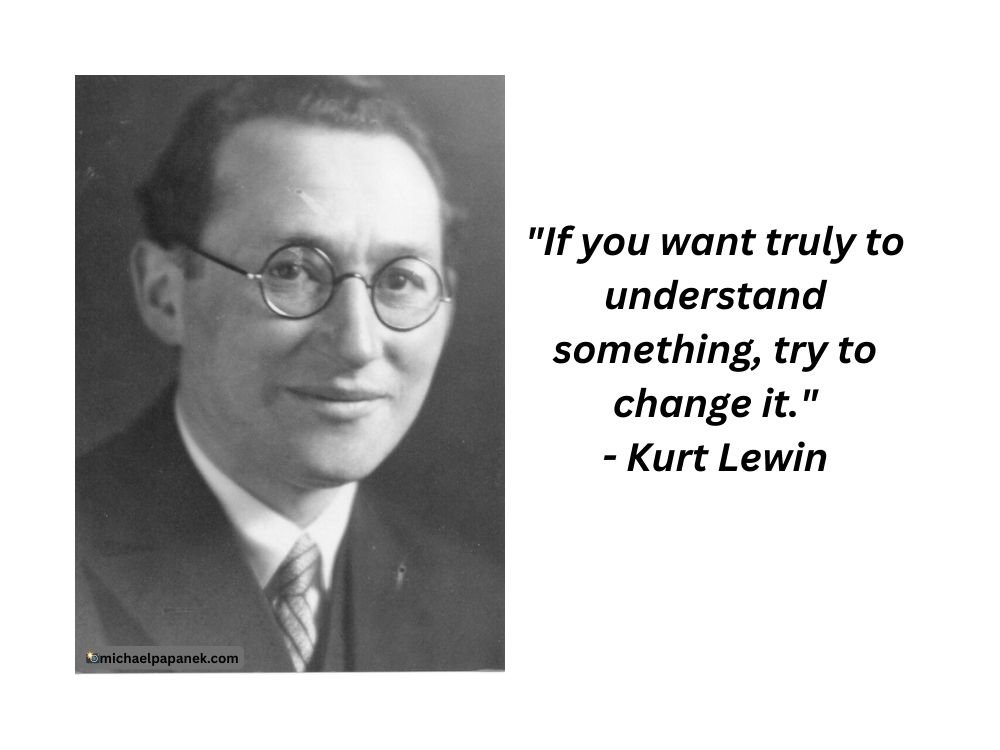A Journey Through Time…
The Evolution of Organisational Development:
OD: Organisation development is an effort planned, organisationwide, and managed from the top, to increase organisation effectiveness and health through planned interventions in the organisation's “processes,” using behavioral-science knowledge. Beckhard (1969)
Organisational Development (OD) is a dynamic field that has undergone a fascinating evolution over the years, shaping the way businesses operate, grow, and adapt to the ever-changing landscape of the corporate world. To truly appreciate the significance of OD, let's embark on a journey through its history, exploring key milestones and transformations that have paved the way for the modern practices we see today.
The Birth of Organisational Development:
The roots of Organisational Development can be traced back to the 1930s and 1940s, a period marked by significant social and economic changes. As industries began to boom, leaders sought ways to improve efficiency, productivity, and employee satisfaction. Enter Kurt Lewin, a psychologist and social scientist, often regarded as the founding father of OD.
Lewin's work in the field of group dynamics and action research laid the foundation for what we now know as Organisational Development. He emphasised the importance of understanding the dynamics within groups, believing that effective change required a holistic approach involving the entire organisation.
The Emergence of Action Research:
In the 1940s, Lewin introduced the concept of "action research" as a method to address real-world problems within organisations. This approach involved a collaborative process where researchers and organisational members worked together to identify issues, implement changes, and evaluate outcomes. The goal was to create a continuous cycle of improvement.
The Human Relations Movement:
The post-World War II era witnessed the rise of the Human Relations Movement, which focused on the importance of human factors in organisations. Scholars like Elton Mayo conducted landmark studies at the Hawthorne Works, emphasising the impact of social and psychological factors on productivity and employee morale. This era contributed significantly to the human-centric approach that is central to Organisational Development today.
Expansion in the 1960s and 1970s:
The 1960s and 1970s marked a period of expansion for OD, with various scholars and practitioners contributing to its development. Notable figures like Douglas McGregor introduced the Theory X and Theory Y, highlighting contrasting views on employee motivation and management styles. Additionally, Warren Bennis and Edgar Schein made substantial contributions to leadership and organisational culture, respectively, shaping the OD landscape further.
System Thinking and Total Quality Management:
The 1980s brought new perspectives to Organisational Development, with a focus on system thinking and total quality management (TQM). Scholars like Peter Senge emphasised the interconnectedness of organisational components, promoting a holistic approach to problem-solving. TQM, championed by thought leaders like W. Edwards Deming, emphasised the importance of continuous improvement and customer satisfaction.
Technology and the Rise of the Digital Age:
As we entered the digital age in the late 20th century, technology became a driving force in organisational change. The widespread adoption of computers, the internet, and digital communication transformed the way businesses operated. OD professionals had to adapt their strategies to navigate the challenges and opportunities presented by the digital revolution.
Modern Trends and the Future of OD:
In the 21st century, Organisational Development continues to evolve in response to globalisation, technological advancements, and a rapidly changing business landscape. The focus has shifted towards agile methodologies, diversity and inclusion, and the integration of artificial intelligence in organisational processes.
As we reflect on the rich history of Organisational Development, it becomes clear that its roots in psychology, sociology, and management have created a multidisciplinary field that remains essential for fostering positive organisational change. The journey from Lewin's early work to the complex and interconnected practices of today showcases the resilience and adaptability of Organisational Development as it continues to shape the future of workplaces worldwide.
Evolving from a background in Anthropology and Engineering Management, Human Everything offers the proven difference in making Organisation Development activities accessible to all businesses. We’d recommend starting with an Engagement Survey to understand your current state of affairs and use that as an informative spring board to start making sustainable positive changes. Learn more about Engagement Surveys.

